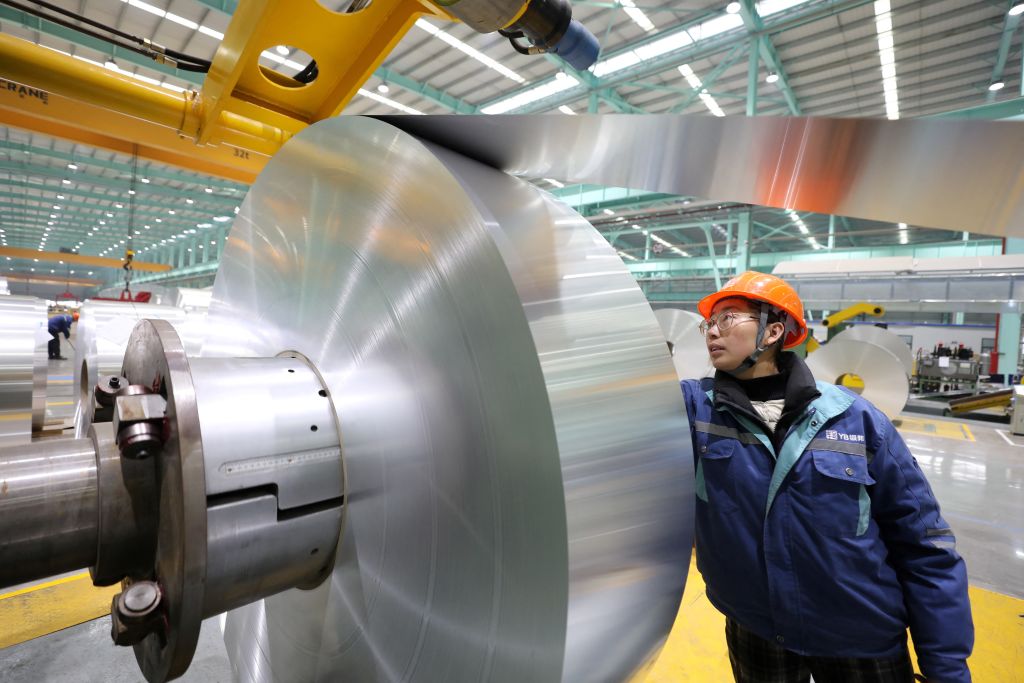(NEXSTAR) — President Donald Trump has rolled out a 25 percent tax on foreign steel and aluminum, similar to those he imposed during his first term (the aluminum tariff was only 10 percent then).
Tariffs are taxes on goods imported from other countries. While they are initially paid for by the companies bringing in the goods, the cost is usually passed on to the consumer through higher price tags.
That means that even if you aren’t buying tons of imported steel and aluminum, your wallet could feel the impact.
Take, for example, beer and soda.

Thousands of these beverages sold in the U.S. come in cans, from pilsners and cola to 99-cent teas and cannabis-infused drinks. Some of those companies are already preparing for what the latest tariffs could mean for their aluminum containers.
Coca-Cola, which offers no less than a dozen canned drink varieties, indicated Tuesday that while it believes it can mitigate the newest Trump tariffs, it could rely more heavily on plastic bottles and other tools.
“It’s not insignificant, but it’s not going to radically change a multibillion-dollar U.S. business,” Coke Chairman and CEO James Quincey said in a conference call with investors. “It’s a cost. It’ll have to be managed. It would be better not to have it relative to the U.S. business, but we are going to manage our way through.”
Quincey did note, however, that Coca-Cola may turn its focus to domestic aluminum sources. He also warned that prices may also be increased.
Nexstar inquired with multiple beverage companies, including PepsiCo, Molson Coors, and Anheuser-Busch, regarding the potential impacts of the tariffs on their businesses and did not receive responses.
Smaller businesses across the country have expressed concerns, though, explaining that consumers may see higher prices due to the tariffs.
Jacob Passey, director of brewing operations for Pinthouse Pizza in Austin, Texas, told Nexstar’s Texas Bureau that the price for a four-pack of their ales could go up a dollar or two. He noted that most of the aluminum they use for canning comes from China.
Unlike larger companies, local breweries can’t store — or potentially afford to purchase — massive amounts of aluminum, something that could help thwart rising prices. That could pose detrimental to craft breweries, Katie Stinchon, executive director of the Mass Brewers Guild, told WBUR.
The Brewers Association warned that small breweries are also seeing shipments of their beers to Canada being canceled, seemingly in retaliation to Trump’s tariffs.
“Canada imports 37.5% of American craft beer exports, making it our industry’s largest export market,” Katie Marisic, Senior Director of Federal Affairs for the Brewers Association, wrote in a Monday blog post. “If Canada, Mexico, and other trade partners decide to retaliate, breweries could see tariffs on their exported beer.”
While prices could rise, Trump reiterated that the tariffs will level the playing field in international trade and make U.S. factories more competitive. He also said more steel mills and aluminum plants could open in the U.S. to avoid the tariffs.
“You’re ultimately going to have a price reduction because they’re going to make their steel here,” said Trump, who claimed the decision would also add jobs.
Similar tariffs enacted during his first term did create roughly 1,000 new jobs, a 2020 study by researchers from Harvard University and the University of California, Davis, found. But, the same tariffs reduced employment elsewhere in the U.S. by 75,000.
“The net effect of all these tariffs at that time — on China, aluminum, steel, plus retaliation — was to reduce U.S. manufacturing unemployment,’’ Gary Hufbauer, senior fellow at the Peterson Institute for International Economics, said. “I’m expecting the same thing this time around.’’
The Associated Press contributed to this report.












